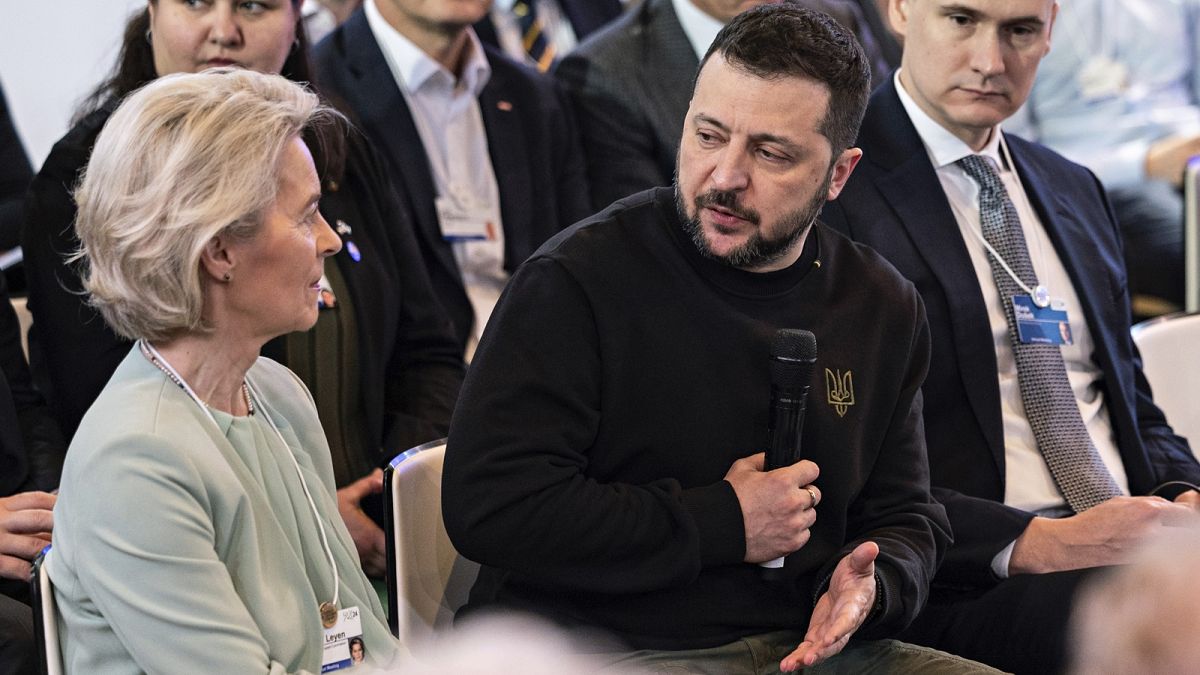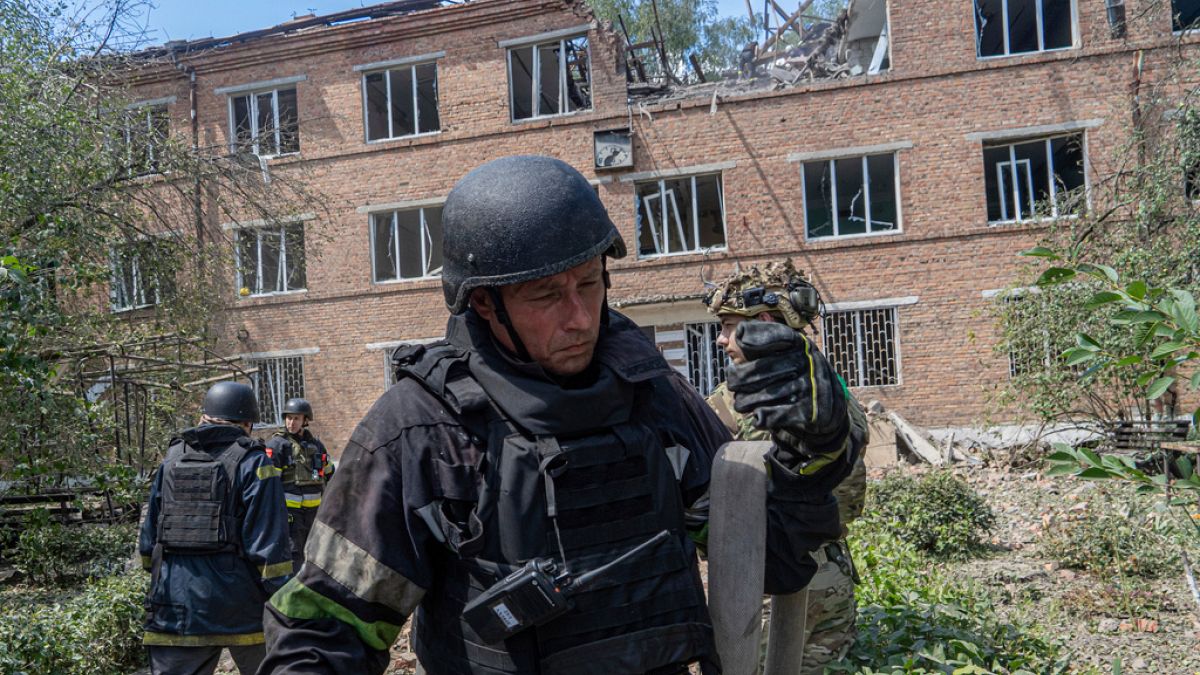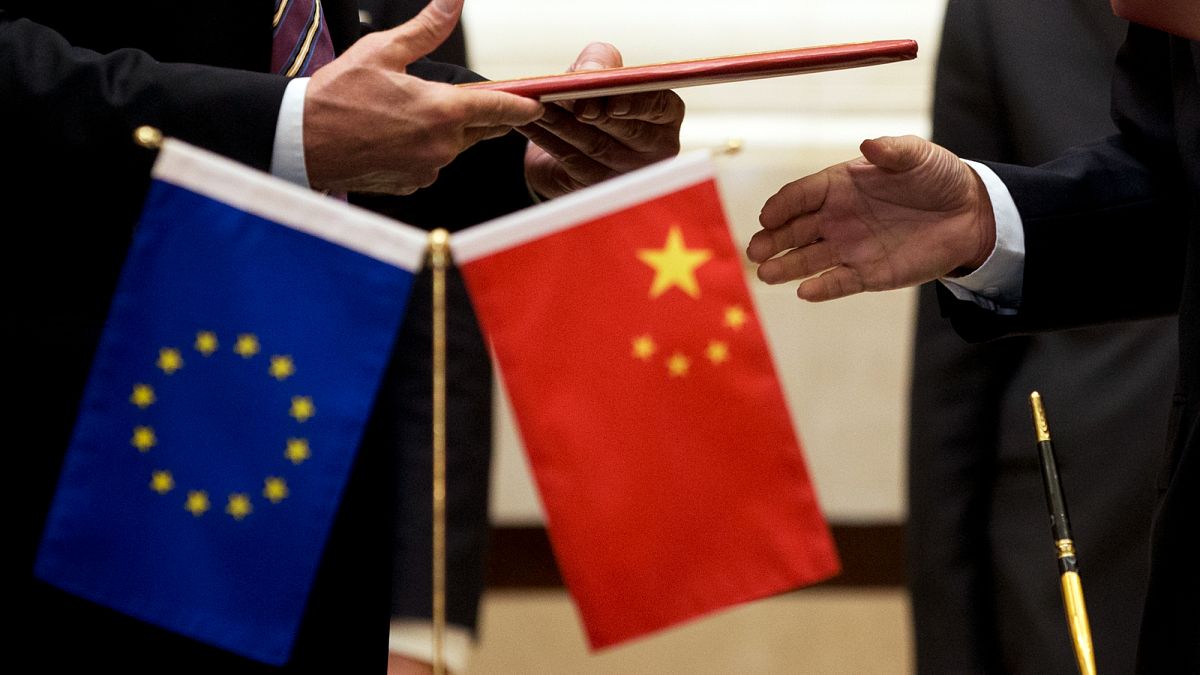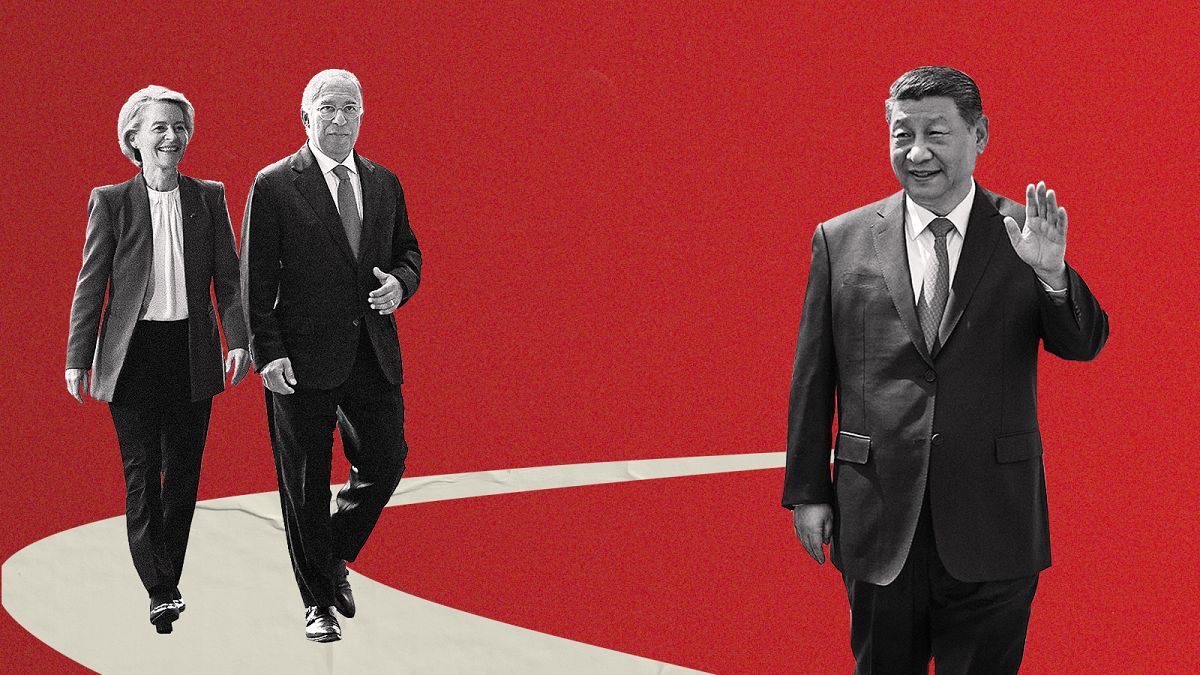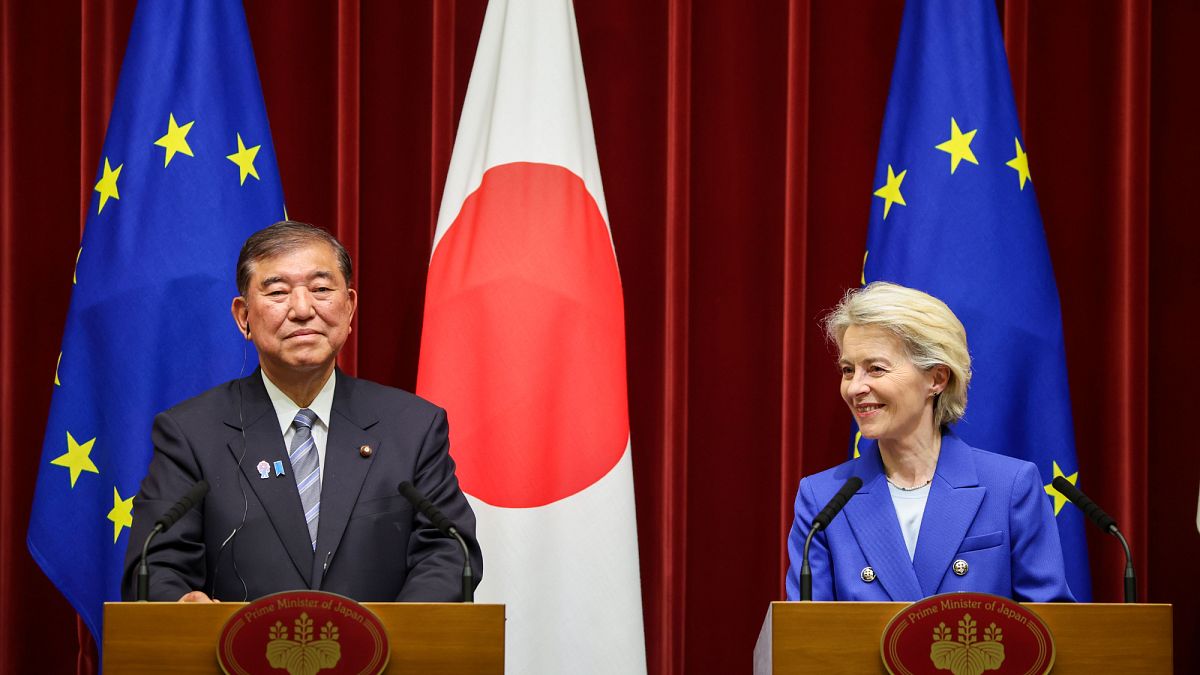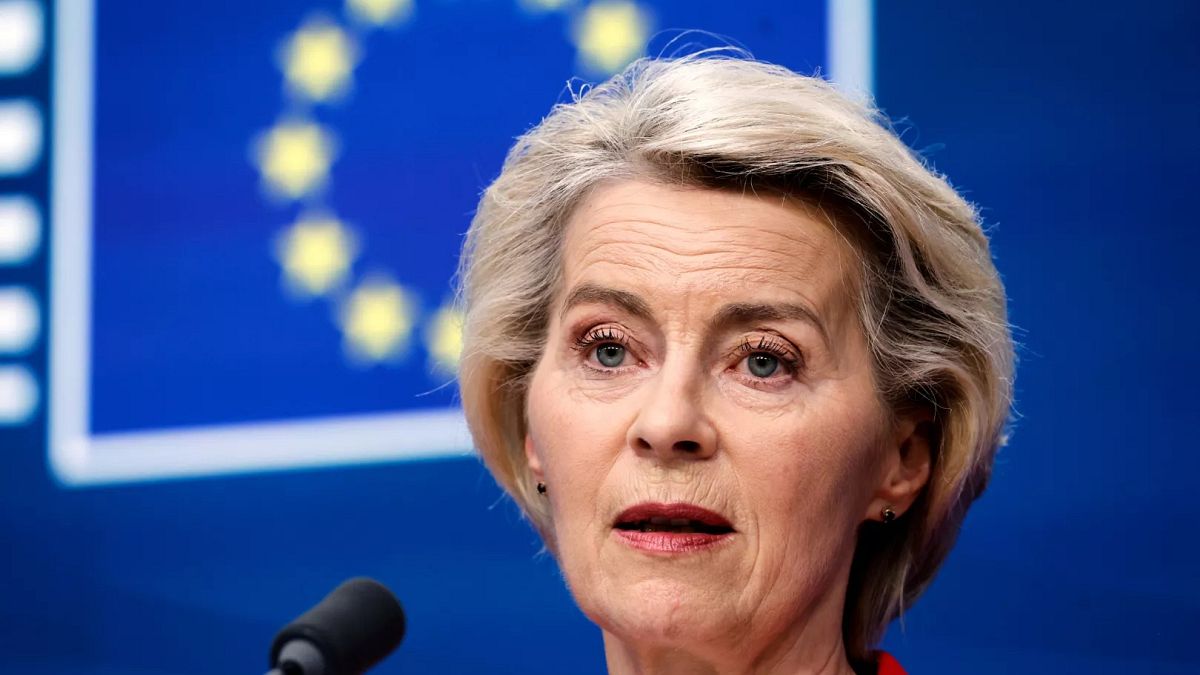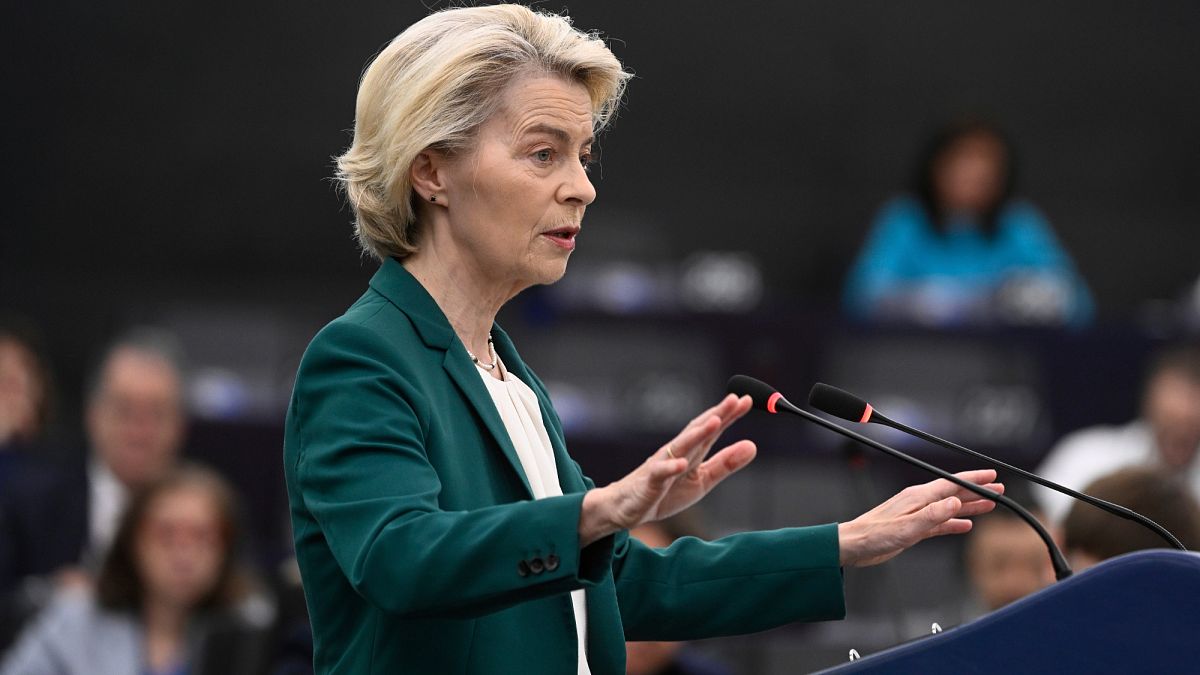Published on
•Updated
ADVERTISEMENT
Ursula von der Leyen has called Volodymyr Zelenskyy to express her “strong concerns” and demand “explanations” over a new law that weakens the independence of two of Ukraine’s anti-corruption agencies: the National Anti-Corruption Bureau of Ukraine (NABU) and the Specialised Anti-Corruption Prosecutor’s Office (SAPO).
Under the legislation, approved by the Ukrainian parliament on Tuesday and signed by Zelenskyy hours later, the two agencies are brought under the direct oversight of the prosecutor general, who is a political appointee.
The prosecutor general will be allowed to select cases handled by NABU and SAPO and reassign them to other state entities, which critics say risks empowering the executive branch to sway investigations, particularly high-profile ones.
“President von der Leyen conveyed her strong concerns about the consequences of the amendments, and she requested the Ukrainian government for explanations,” a Commission spokesperson said on Wednesday.
“The respect for the rule of law and the fight against corruption are core elements of the European Union. As a candidate country, Ukraine is expected to uphold these standards fully. There cannot be a compromise.”
Brussels hardens its tone
The direct intervention of the European Commission president represents a new escalation in the unexpected clash between Brussels and Kyiv.
It is the first time since the start of Russia’s full-scale invasion that the executive has voiced such explicit criticism against Zelenskyy’s government.
On Tuesday, Marta Kos, the European Commissioner for Enlargement, voiced her strong disapproval in a bid to deter Kyiv from moving ahead with the controversial bill, which made its way through parliament at a speed that seemed to catch Brussels off guard.
“We are very concerned about the adoption of the Criminal Code amendments in Ukraine. They risk weakening strongly the competences and powers of the anti-corruption institutions of Ukraine,” the spokesperson went on.
“Both institutions, the National Anti-Corruption Bureau of Ukraine (NABU) and the Specialised Anti-Corruption Prosecutor’s Office (SAPO) are widely regarded as cornerstones of Ukraine’s rule of law. These institutions are crucial to Ukraine’s reform agenda and must operate independently to fight corruption and maintain public trust.”
The fight against corruption is central to Ukraine’s ambitions to join the European Union and is considered fundamental to attracting private capital for its reconstruction.
A few hours after the phone call with von der Leyen, Zelenskyy acknowledged the mounting pressure and discontent and promised to submit a new bill to “ensure the strength of the rule of law system”, an apparent reversal of course.
“There will be no Russian influence or interference in the activities of law enforcement,” he said, referring to the recent raids into NABU over allegations of Russian espionage.
“And very importantly – all the norms for the independence of anti-corruption institutions will be in place,” he went on. “This will be a presidential bill, and we will implement it as part of our strategy for the transformation of the state.”
It was not immediately clear how the new bill would address the concerns raised by the European Commission.
This article has been updated to reflect Zelenskyy’s reaction.



